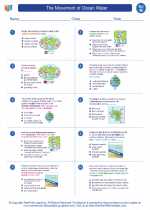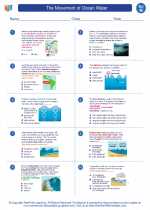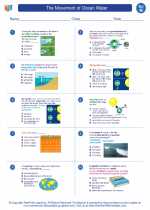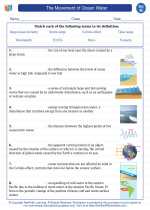Radiation
Radiation is the emission of energy in the form of waves or particles. It can take many forms, including light, heat, sound, and the emission of subatomic particles. In the context of science, radiation often refers to electromagnetic radiation, such as radio waves, microwaves, infrared, visible light, ultraviolet, X-rays, and gamma rays.
Types of Radiation
- Electromagnetic Radiation: This type of radiation includes radio waves, microwaves, infrared, visible light, ultraviolet, X-rays, and gamma rays. Each type of electromagnetic radiation has different properties and uses.
- Particle Radiation: This includes the emission of subatomic particles such as alpha particles, beta particles, and neutrons. These particles can be emitted from radioactive materials and can have harmful effects on living organisms.
- Nuclear Radiation: This type of radiation is associated with the nucleus of an atom and includes alpha and beta decay, as well as gamma radiation.
Uses of Radiation
Radiation has numerous practical applications in various fields:
- Medical Imaging: X-rays and gamma rays are used for medical imaging to visualize the internal structures of the body.
- Cancer Treatment: Radiation therapy is used to treat cancer by targeting and destroying cancerous cells.
- Energy Production: Nuclear power plants use nuclear fission to generate electricity.
- Food Preservation: Radiation is used to kill bacteria and pests in food, extending its shelf life.
- Communications: Radio waves are used for wireless communication, including radio and television broadcasting, as well as cell phone signals.
Radiation and Health
While radiation has many beneficial uses, it can also pose health risks. Exposure to high levels of ionizing radiation, such as X-rays and gamma rays, can damage cells and DNA, leading to an increased risk of cancer and other health effects. It is important to minimize unnecessary exposure to radiation and take appropriate safety precautions in environments where radiation is present.
Understanding the different types of radiation, their properties, uses, and potential health effects is essential for making informed decisions about its applications and ensuring safety in various settings.
Study Guide
- What are the different types of radiation? How do they differ from each other?
- Describe some common uses of radiation in everyday life and various fields such as medicine, energy production, and communication.
- Explain the potential health risks associated with exposure to ionizing radiation and the importance of safety measures.
- Discuss the differences between electromagnetic radiation and particle radiation, providing examples of each type.
- Research and present a case study on a significant historical event or discovery related to radiation and its impact on society.
◂Science Worksheets and Study Guides Eighth Grade. The Movement of Ocean Water

 Worksheet/Answer key
Worksheet/Answer key
 Worksheet/Answer key
Worksheet/Answer key
 Worksheet/Answer key
Worksheet/Answer key
 Vocabulary/Answer key
Vocabulary/Answer key
 Vocabulary/Answer key
Vocabulary/Answer key
